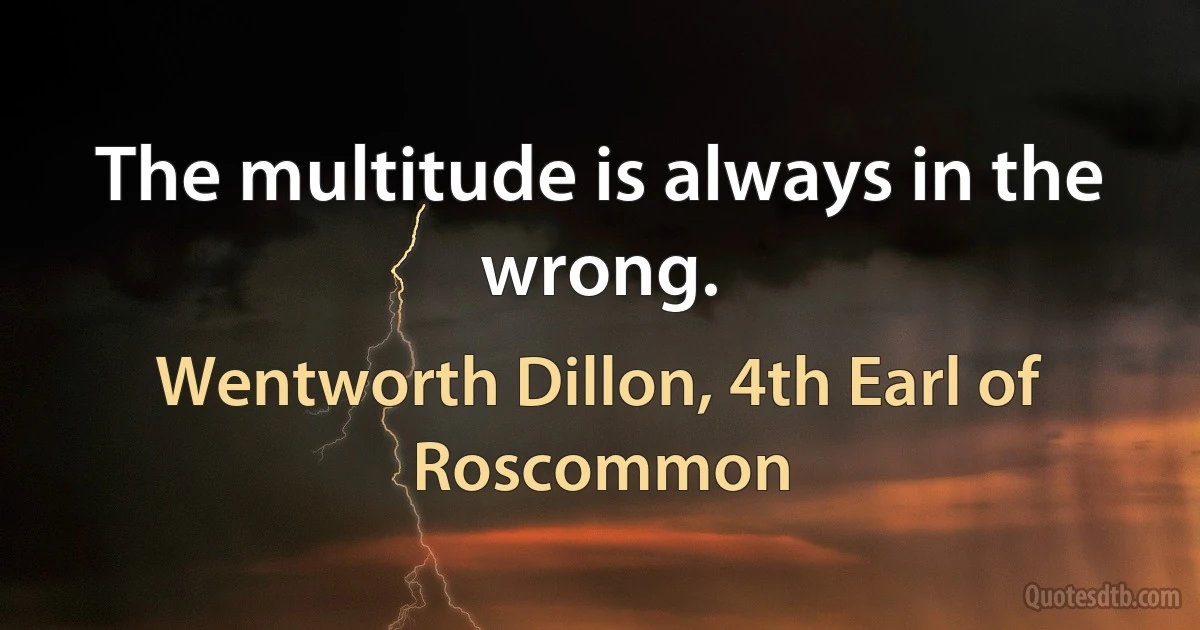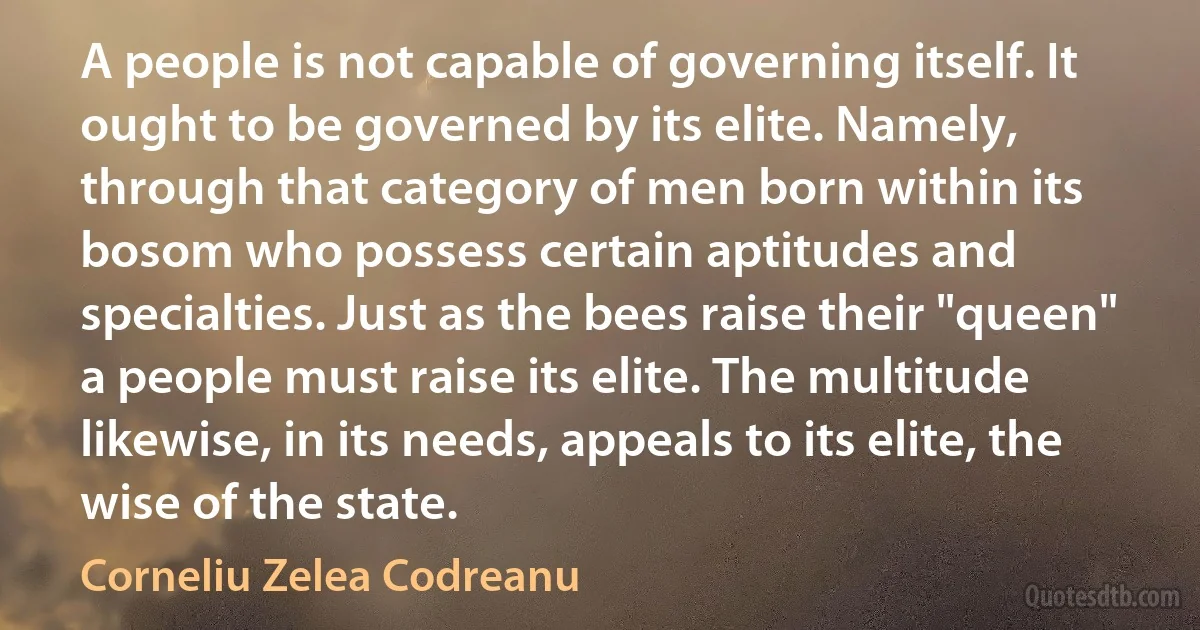Multitude Quotes - page 6
It is true that to one who was a rustic and a soldier the political proceedings of the capital were strange and incongruous: he spoke as ill as he commanded well, and displayed a far firmer bearing in the presence of the lances and swords of the enemy than in presence of the applause or hisses of the multitude; but his inclinations were of little moment. The hopes of which he was the object constrained him.

Theodor Mommsen
...the splitting up of mankind into a multitude of infinitesimal governments, in accordance with their actual differences of dialect or their presumed differences of race, would be to undo the work of civilisation and renounce all the benefits which the slow and painful process of consolidation has procured for mankind...It is the agglomeration and not the comminution of states to which civilisation is constantly tending; it is the fusion and not the isolation of races by which the physical and moral excellence of the species is advanced. There are races, as there are trees, which cannot stand erect by themselves, and which, if their growth is not hindered by artificial constraints, are all the healthier for twining round some robuster stem.

Robert Gascoyne-Cecil, 3rd Marquess of Salisbury
26. And [the Messiah] said unto them, "If a man told God that he wanted most of all to help the suffering world, no matter the price to himself, and God answered and told him what he must do, should the man do as he is told?"27. "Of course, Master!" cried the many. "It should be pleasure for him to suffer the tortures of hell itself, should God ask it!"28. "No matter what those tortures, no matter how difficult the task?"29. "Honor to be hanged, glory to be nailed to a tree and burned, if so be that God has asked," said they.30. "And what would you do," the Master said unto the multitude, "if God spoke directly to your face and said, 'I COMMAND THAT YOU BE HAPPY IN THE WORLD, AS LONG AS YOU LIVE.' What would you do then?"31. And the multitude was silent, not a voice, not a sound was heard upon the hillsides, across the valleys where they stood.

Richard Bach
Everywhere, no matter what the sphere of interest (whether religious, political, or personal), the really creative acts are represented as those deriving from some sort of dying to the world; and what happens in the interval of the hero's nonentity, so that he comes back as one reborn, made great and filled with creative power, mankind is also unanimous in declaring. We shall have only to follow, therefore, a multitude of heroic figures through the classic stages of the universal adventure in order to see again what has always been revealed. ...the singleness of the human spirit in its aspirations, powers, vicissitudes, and wisdom.

Joseph Campbell
Men are very much to be pitied in that they are to be governed by a king who is but a man like them; for it would require Gods to reform men. But kings are not less to be pitied, since being but men, that are weak and imperfect, they are to govern this innumerable multitude of corrupt and deceitful men.

François Fénelon
If the multitude does not understand or understands only with difficulty several laws that are immediately necessary to its life, how can it be imagined by someone that it -which in a democracy must be led through itself-could understand the most difficult natural laws; or that it would know intuitively the most subtle and imperceptible norms of human leadership, norms that project beyond itself, its life, its life's necessities, or which do not apply directly to it but to a more superior entity, the nation?

Corneliu Zelea Codreanu
It is clear that the origins of the discourse on multitude are to be found in the subversive interpretation of the thinking of Spinoza. I can never tire of stressing the importance of the Spinozan premise in the treatment of this thematic. And one highly Spinozist theme is that of the body, and particularly that of the potent body.

Baruch Spinoza
A certain type of outdoor activity has been much developed in recent years and calls great throngs together, which may properly be designated as exhibition games. Under this head comes first in importance baseball, which is often known as the national game. Football and polo come in the same class. These activities require such long and intensive training that participation in them is necessarily confined to a class and can not be said to be open to the general public. But for creating an interest which extends to every age and every class, for giving an opportunity for a few hours in the open air which will provide a change of scene, a new trend of thought, and the arousing of new enthusiasm for the great multitude of our people, these have no superior.

Calvin Coolidge
The mothers of all ages are those who have suffered because others suffered; for each of them, self is less sensitive than the sense of her child. Self is not locked up in the maternal heart, there to be cherished, as it is by the egoist, or to be crushed and silenced, as it is by the Saint. In the mother, self is not lost, but loses all its evil by the passionate personal love that distributes it among sons and daughters. Perfect self-less love would perhaps be distributed through the multitude, but a mother is not perfect: nature has so much use for her-separate, family use-that she cannot let her go free from irrational, indispensable partialities and limitings, even injustices, all serving the turn of the race.

Alice Meynell
In a field of ripening corn I came to a place which had been trampled down by some ruthless foot; and as I glanced amongst the countless stalks, every one of them alike, standing there so erect and bearing the full weight of the ear, I saw a multitude of different flowers, red and blue and violet. How pretty they looked as they grew there so naturally with their little foliage! But, thought I, they are quite useless; they bear no fruit; they are mere weeds, suffered to remain only because there is no getting rid of them. And yet, but for these flowers, there would be nothing to charm the eye in that wilderness of stalks. They are emblematic of poetry and art, which, in civic life-so severe, but still useful and not without its fruit-play the same part as flowers in the corn.

Arthur Schopenhauer



